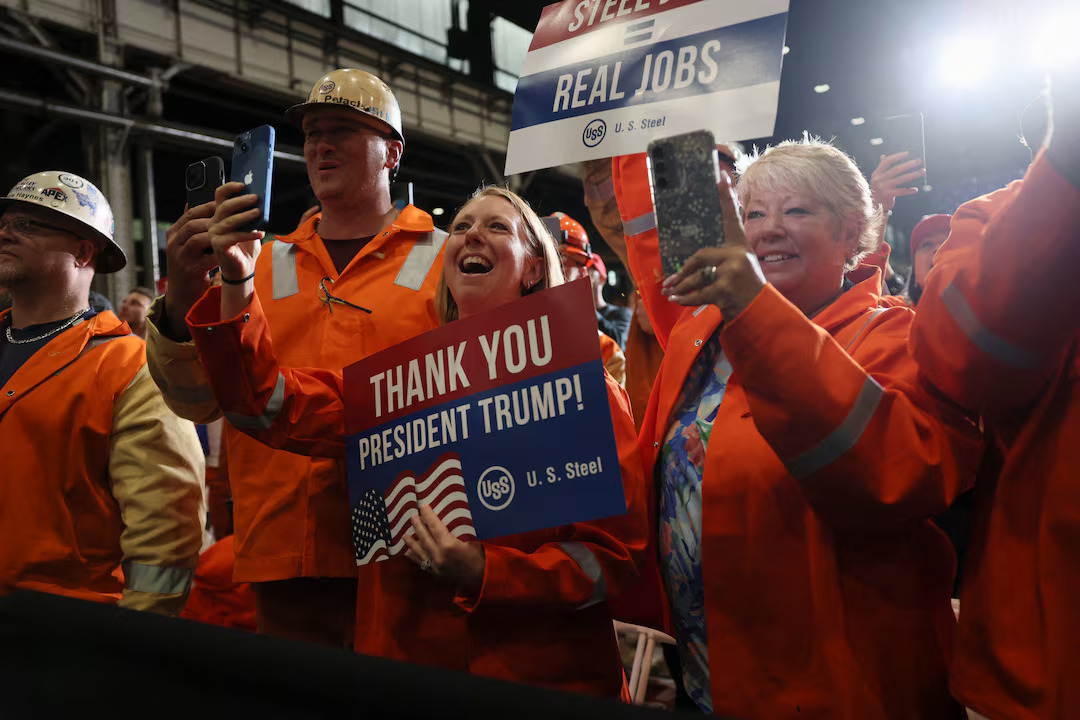Zoe, a 24-year-old student and self-declared non-Trump supporter, attended a steelworkers rally in West Mifflin, Pennsylvania, to support her partner’s job security. Though she has never voted for Trump and doesn’t plan to, she was among many concerned about the future of jobs after Japan’s Nippon Steel proposed a $15 billion acquisition of US Steel.
The rally, headlined by President Trump, centered on economic security, investment, and the future of American manufacturing jobs—key issues for attendees like Zoe, who see industrial stability as central to their families’ futures.
Political Reversals and Economic Promises Shape Reactions to Nippon Steel Acquisition Deal
Initially touted as a mutually beneficial agreement between the US and Japan, the Nippon Steel acquisition soon became politically contentious. Both Donald Trump and President Joe Biden eventually opposed the deal, each framing it as a threat to American industry and jobs.
Biden ultimately blocked the acquisition during his final weeks in office. However, Trump recently reversed his stance, voicing tentative support for the partnership and promising increased investment and protectionist measures, including raising steel and aluminum tariffs to 50%.

Despite Trump’s shifting position on the Nippon deal, many rally attendees were willing to accept his reversal if it meant economic benefit. Longtime US Steel employees like Ron and John rationalized the president’s change of heart as a response to new information. Others, including Ben and his son Tyler, supported the deal’s potential, noting that Nippon had “sweetened the pot.” The mood at the rally suggested that economic pragmatism had outweighed political consistency for many steelworkers and their families.
Union Divides and Local Doubts Reflect Uneasy Hopes for Steel Industry’s Future
The leadership of the United Steelworkers (USW) union has remained firmly opposed to the acquisition, citing Nippon’s history of violating trade laws and the need for contractual safeguards. USW president David McCall warned against trusting the deal without detailed documentation, while rally speakers from US Steel and Nippon struck a more optimistic tone. Meanwhile, a rift emerged between union leadership and some rank-and-file members who openly supported the deal, suggesting a deepening divide within the labor movement over globalization and job preservation.
Beyond the rally, reactions among Pittsburgh locals were more reserved. Many were unaware of Trump’s presence in the city, reflecting a level of disengagement from the high-profile event. Yet some, like Uber driver Steve Smith, viewed the deal pragmatically, seeing it as a way to preserve what remains of the local steel industry. Though skeptical of the long-term benefits, Smith and others acknowledged the necessity of action to prevent further industrial decline, encapsulating a community caught between nostalgia, economic necessity, and cautious hope.
